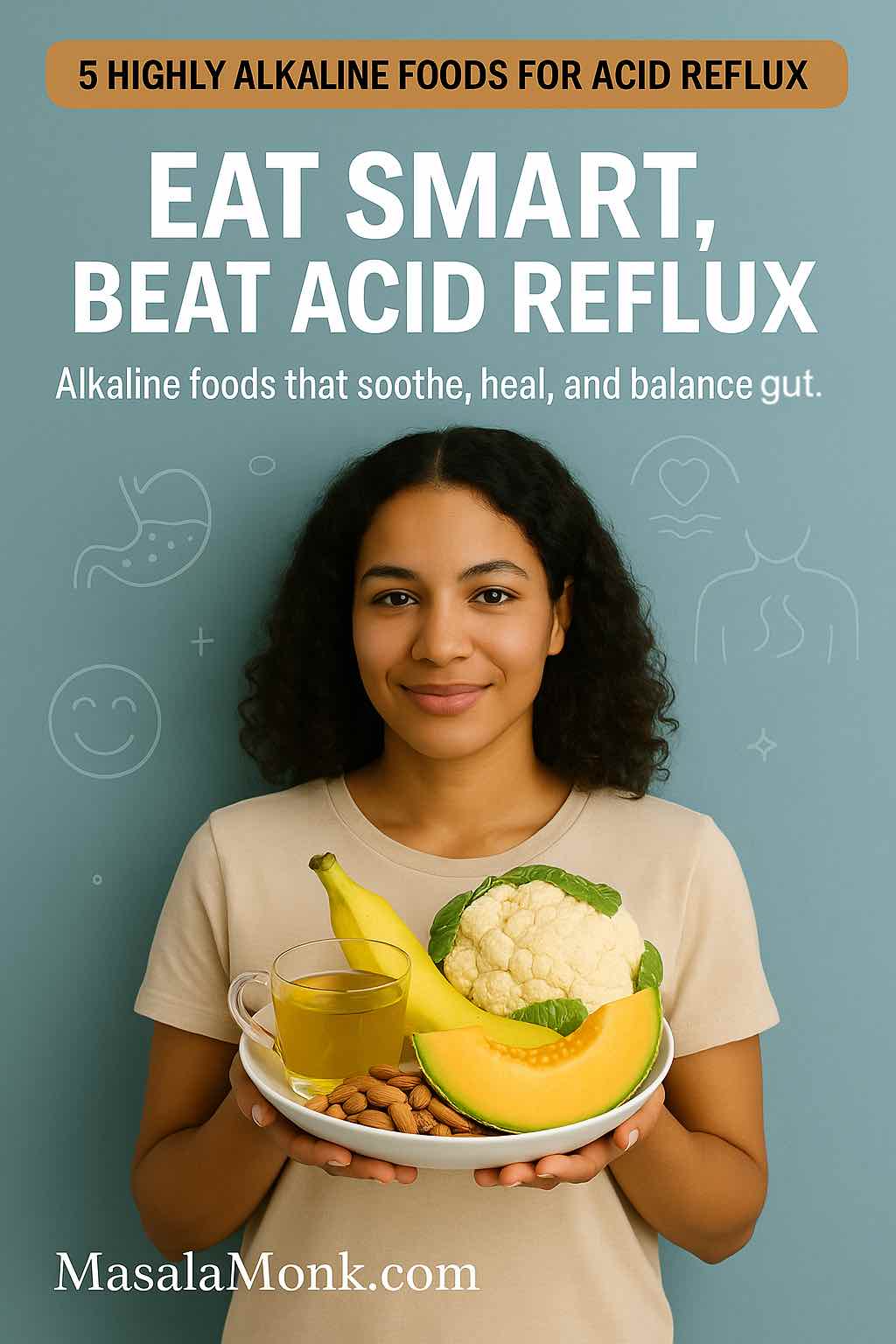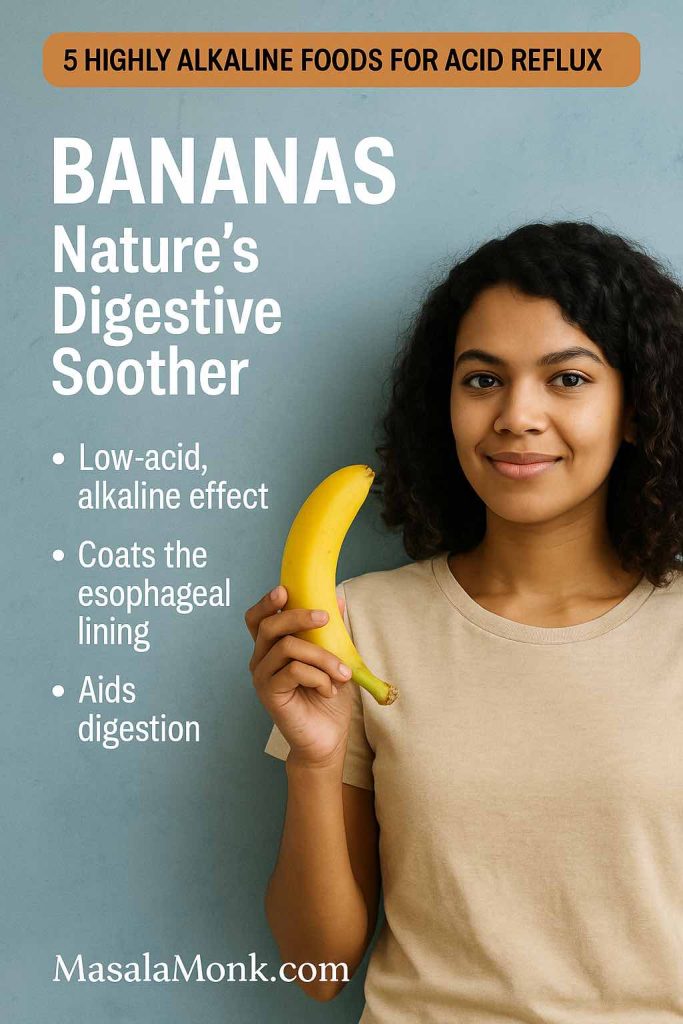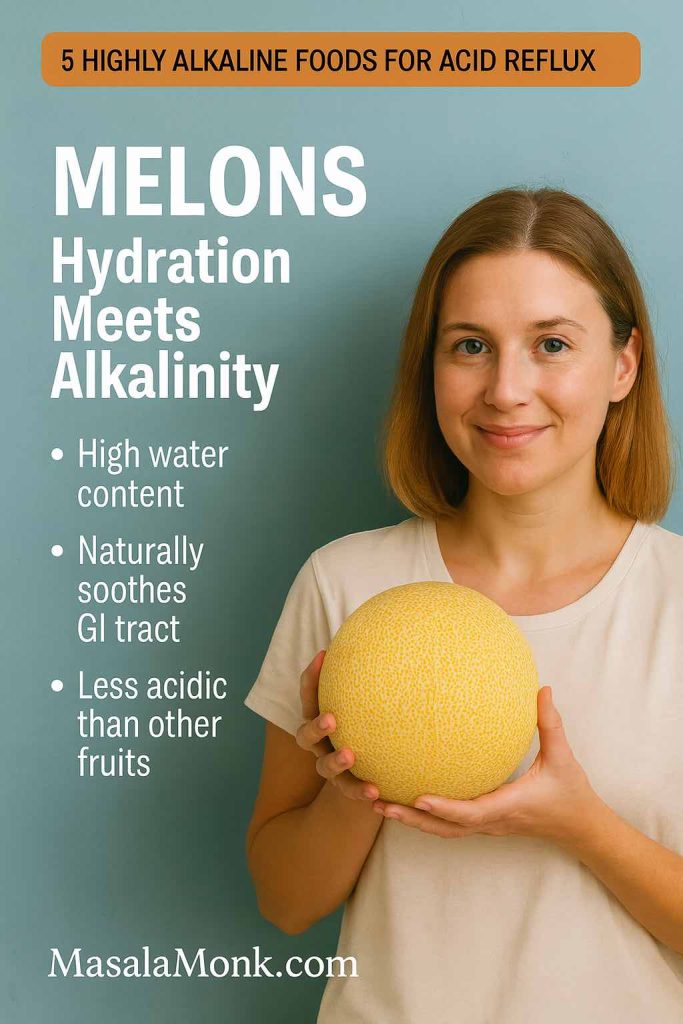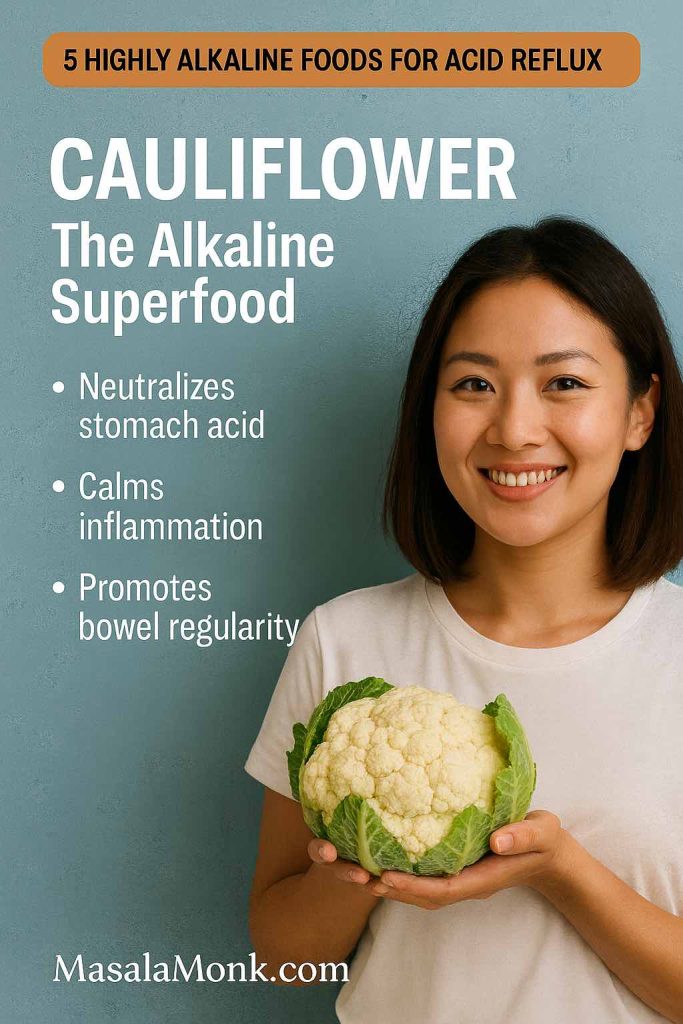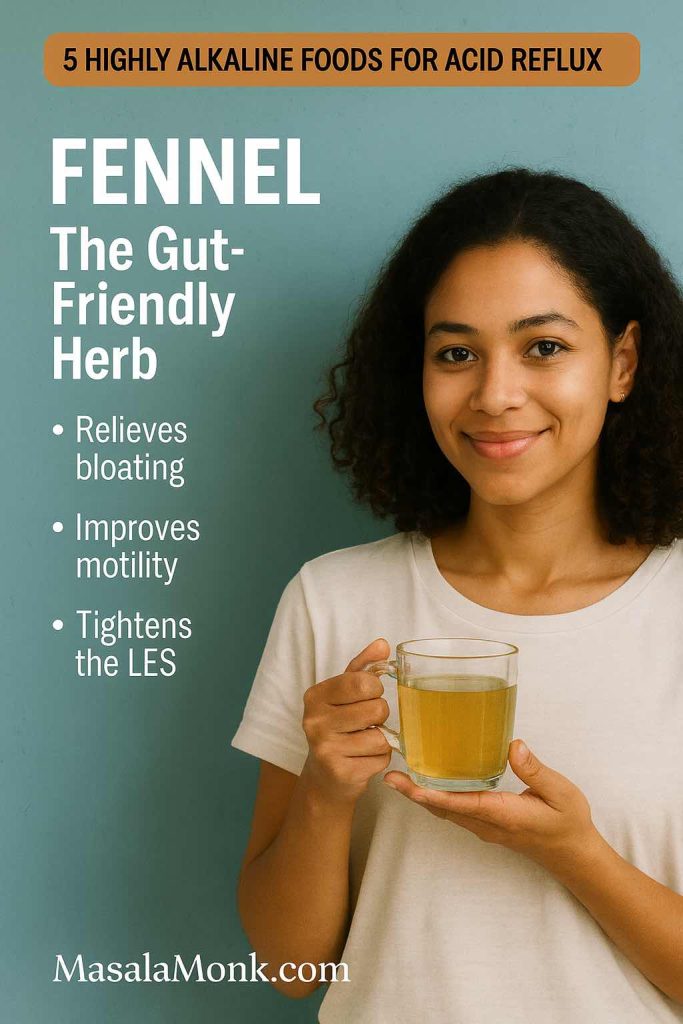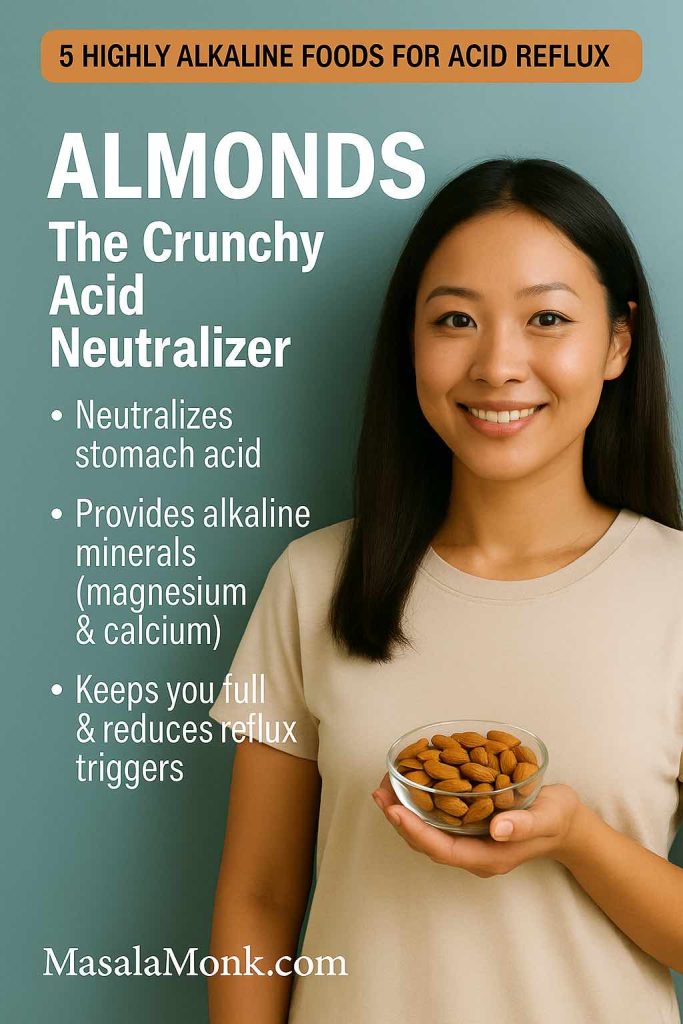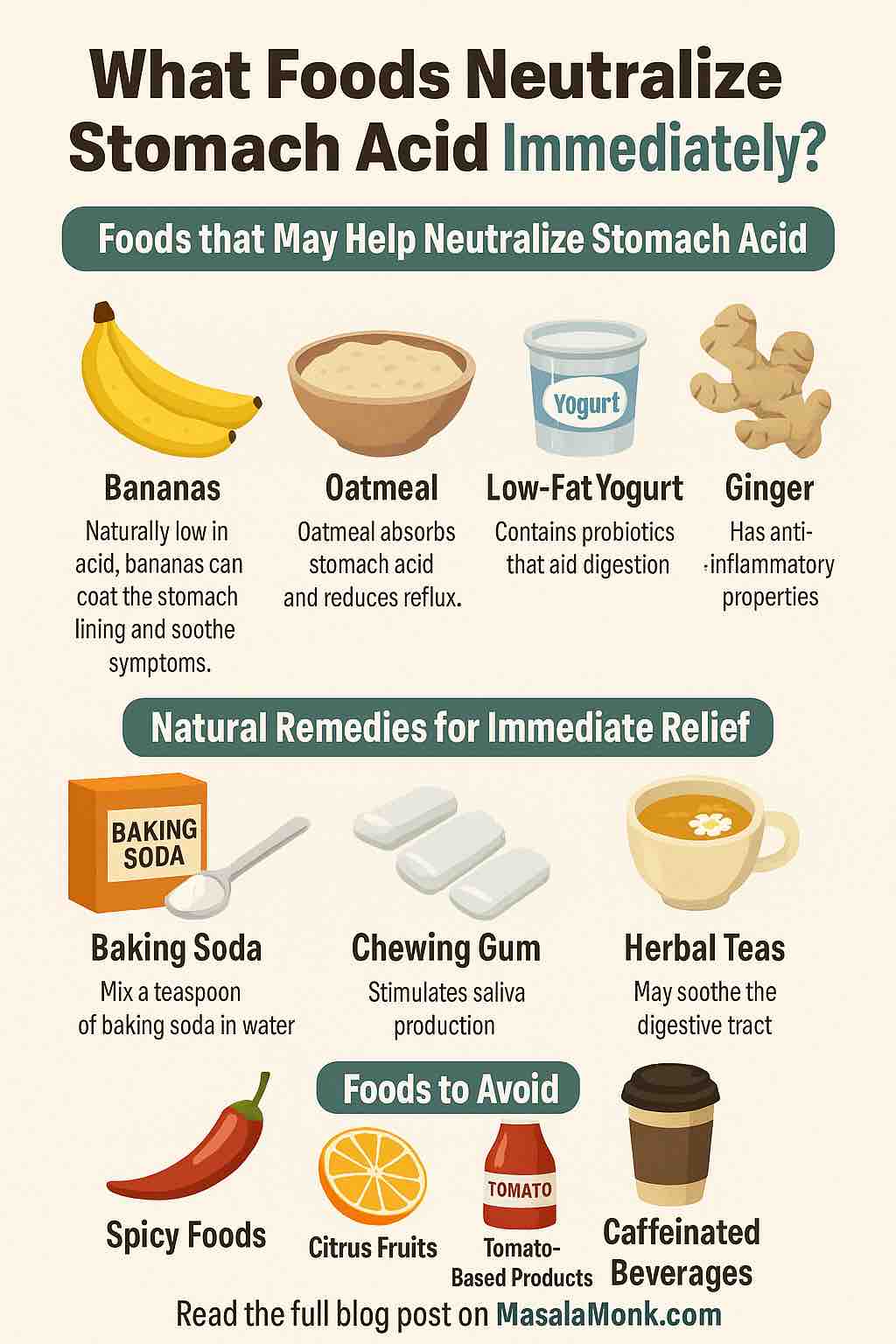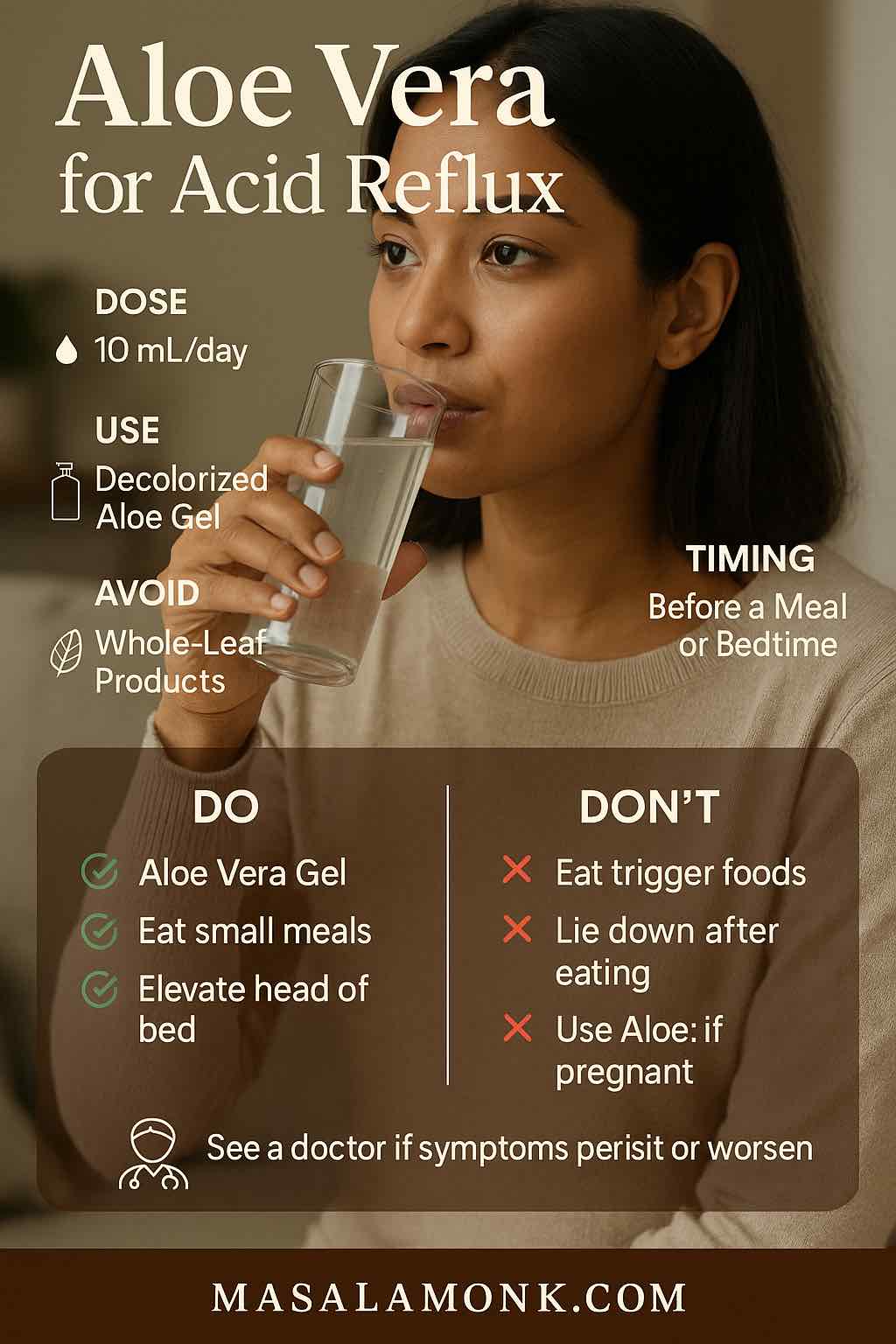
When heartburn climbs up your chest and throat, you want relief that’s gentle, sensible, and safe—not hype. That’s exactly why so many readers ask about aloe vera for acid reflux. Aloe sounds soothing and natural, yet the internet often oversells it and skips the safety details. So, in this guide, we’ll walk you—step by step—through what aloe really is, how it might help, what the science actually shows, and how to use it (if you choose to) without getting burned. Along the way, we’ll place aloe in the bigger reflux picture and connect you with practical resources you can use tonight.
Before we dive in, yes—there is human evidence. A small randomized trial tested a standardized inner-gel syrup at 10 mL/day and reported fewer typical GERD symptoms after four weeks. You can read it here: Efficacy and safety of Aloe vera syrup for GERD (2015 RCT). However—and this is crucial—aloe is not a substitute for guideline-based care when that’s indicated. For the big-picture ladder of GERD care, see ACG Clinical Guideline: Diagnosis and Management of GERD (AJG 2022) (or save the PDF summary).
⚠️ Educational information, not medical advice. Always talk to your healthcare professional before starting, stopping, or changing any treatment or supplement—especially if you’re pregnant, nursing, have a medical condition, or take medications. If you have urgent or severe symptoms, seek emergency care.
Why people consider aloe vera for acid reflux (and why words matter)
First, let’s untangle the vocabulary. When someone recommends aloe vera for acid reflux, they usually mean the clear inner gel from the leaf of Aloe barbadensis. Right underneath the leaf rind, though, lives a yellow latex layer that’s rich in anthraquinones (like aloin). Those compounds act as stimulant laxatives—absolutely not what you want when your esophagus feels raw.
Second, let’s name the plausible benefit. People describe aloe gel as silky and cooling. That sensation comes from polysaccharides—mucilage-like molecules that can feel soothing on irritated tissue. If aloe helps reflux, it probably helps by comforting the mucosa and perhaps calming low-grade inflammation. It does not “neutralize” or “alkalize” your stomach in any profound way; your body regulates gastric acid tightly.
If you’d like a friendly primer on uses and safety before you try anything, start with NCCIH: Aloe Vera—Usefulness and Safety. It offers balanced consumer-level guidance.
What the research really says about aloe vera for acid reflux
Now, onto the data. While the research stack is not huge, it’s not empty either.
- The pilot RCT (4 weeks). Adults with GERD were randomized to three groups: a standardized aloe gel syrup (10 mL/day, 5 mg polysaccharides per mL), omeprazole, or ranitidine. After four weeks, the aloe group reported fewer typical GERD symptoms and tolerated the treatment well. Because this study was short and single-center, it should be considered suggestive, not definitive. Nevertheless, it provides a reasonable, evidence-aligned starting dose if you want to try aloe. Read the trial: Aloe vera syrup for GERD (PubMed).
- Guideline context. Next, zoom out. For persistent heartburn—and especially for erosive disease—proton-pump inhibitors (PPIs) remain first-line; H2 blockers, alginates, lifestyle measures, and, when needed, procedures round out the ladder. Herbal agents like aloe aren’t standard therapy yet because the body of evidence remains limited. See the clinical hierarchy here: ACG Clinical Guideline (AJG 2022) (and the PDF).
- Broader context on natural options. If you want a survey of natural products that have been explored for reflux—aloe included—this umbrella-style review is handy: Natural Products in the Management of GERD (2025).
Takeaway: You can try aloe vera for acid reflux as an adjunct. Nevertheless, don’t delay or replace proven therapy when your symptoms are frequent, severe, or complicated.
Safety first: inner gel vs. latex vs. “whole-leaf” (and why decolorized matters)
Here’s where many articles wave their hands. We won’t.
Inner gel is what you want for ingestion. Latex—the yellow layer beneath the rind—contains the stimulant laxative constituents you want to avoid. Products labeled “whole-leaf” may include more of those latex compounds unless the manufacturer removes them. That removal process is commonly called “decolorization” or “purification” (often via activated-carbon filtration).
Why does that distinction matter so much? Because long-term animal studies detected a carcinogenic signal with non-decolorized whole-leaf aloe in rats (not mice). That’s exactly why most experts recommend decolorized/purified inner-gel for oral use. You can read the technical details here: NTP Technical Report 577—Non-decolorized whole-leaf Aloe vera (PDF) and the TR-577 summary page.
Additionally, there’s important regulatory history. In 2002, the U.S. FDA removed aloe latex stimulant laxatives from the over-the-counter monograph, meaning they aren’t considered generally recognized as safe and effective for nonprescription laxative use. Crucially, that ruling targeted latex/whole-leaf laxative ingredients—not the purified inner-gel products that show up in reflux trials. Read the rule: Federal Register final rule (May 9, 2002) (also listed on PubMed and mirrored on GovInfo).
Finally, note that rare, usually self-limited liver injury has been reported with aloe, especially in non-decolorized preparations or concentrated supplements. If you have liver disease or take hepatically metabolized medicines, speak with your clinician first. For a solid reference, see NIH LiverTox—Aloe Vera.
For consumers, a plain-English overview of risks and benefits sits here: NCCIH: Aloe Vera—Usefulness and Safety.
How to choose aloe vera for acid reflux (so you don’t regret it later)
Because quality varies, the product you pick matters almost as much as the decision to try aloe in the first place.
Look for these phrases on the label
- “Decolorized/purified” inner-gel (carbon-filtered) rather than “non-decolorized whole-leaf.”
- Very low anthraquinones (e.g., aloin) or explicit third-party testing. Many reputable brands aim for <10 ppm aloin in ingestible products—even if not all labels state it. The International Aloe Science Council Quality Standard outlines industry benchmarks for identity and purity; meanwhile, this toxicology paper supports the safety profile of decolorized aloe juice: Toxicologic Assessment of a Decolorized Aloe Juice (2013).
- Low/no added sugar, a clear serving size, and (bonus) a polysaccharide/solids specification.
Choose a format that fits both the evidence and your routine
- Best match to human data: a standardized inner-gel syrup (like the trial).
- Also common: “gel juices” (beverages) and capsules/powders. Beverages can be less standardized; capsules vary widely and lack direct GERD trials. If you opt for them, lean heavily on brand transparency and testing.
If you’d like a friendly explainer on how ingestible aloe products are processed, NCCIH’s overview is a solid resource.
⚠️ Educational information, not medical advice. Always talk to your healthcare professional before starting, stopping, or changing any treatment or supplement—especially if you’re pregnant, nursing, have a medical condition, or take medications. If you have urgent or severe symptoms, seek emergency care.
How to use aloe vera for acid reflux (step by step)
Let’s keep this practical, doable, and safe.
1) Start low, and stay consistent
Begin with 10 mL/day of a standardized inner-gel syrup, and reassess symptoms after 2–4 weeks. This mirrors the RCT: Aloe vera syrup RCT (PubMed).
2) Pick a time you can keep
Because we lack head-to-head timing studies, consistency matters more than the clock. Choose a slot—before dinner or at bedtime—and stick to it daily.
3) Track real outcomes, not just vibes
Note changes in three practical metrics: heartburn intensity, regurgitation episodes, and nighttime awakenings. If there’s no improvement after a few weeks, pause. Then, shift focus back to guideline-based care: ACG Clinical Guideline (AJG 2022).
4) Know when to stop—and when to call your clinician
Stop if you develop diarrhea, cramping, or worsening reflux. If you take diuretics, anticoagulants, or diabetes medicines, discuss aloe with your clinician first; aloe can interact with medications or alter absorption. And if you notice alarm symptoms—trouble swallowing, GI bleeding, persistent vomiting, chest pain, or unexplained weight loss—don’t self-treat; seek medical care promptly. For an easy safety recap, keep NCCIH’s aloe page handy.
Where aloe vera fits in a smart reflux plan (without overpromising)
Think of aloe vera for acid reflux as a supporting actor, not the star. To see where it slots in, consider a simple three-rung ladder:
- Lifestyle foundations that genuinely help
To reduce reflux pressure at the source, begin with everyday changes that compound over time. For a friendly, food-first framework, skim our remedies for acid reflux guide. Then, refine your plate by identifying foods that worsen acid reflux and choosing from foods that help with acid reflux. If you prefer a list-style reminder, here’s a practical foods to avoid for acid reflux overview.
Additionally, consider beverage swaps. If coffee stirs symptoms, these guides will help: is coffee or caffeine bad for GERD? and decaf coffee and GERD. For a broader beverage checklist—including water, herbal infusions, and soothing sips—see what to drink for acid reflux. - Medications when indicated (guided by your clinician)
PPIs are first-line for typical and erosive GERD; they reduce acid and heal esophagitis when present. H2 blockers can help with milder or breakthrough symptoms, while alginates add a “raft” after meals. The algorithm and decision points are well-laid-out in the ACG guideline (do save the PDF for easy reference). - Adjuncts, used thoughtfully
This is where aloe vera for acid reflux can play a role—particularly for people with mild, uncomplicated symptoms who want an extra, gentle layer of comfort. Keep the trial short and consistent, and let outcomes guide your next step. If you appreciate botanicals, you might also explore ginger for heartburn and acid reflux or soothing teas for digestion, bloating, and gut health as complementary options.
For the long game, nutrition remains your friend. As you make changes, you might enjoy this natural food guide for acidity and our list of the best greens for gut health. And if you’re curious about the bigger picture of inflammation in the gut, this explainer is a clear next read: gut inflammation and digestive health.
Special situations you asked about (with realistic expectations)
Because reflux wears many faces, let’s address two scenarios that come up often.
Nighttime reflux and LPR-type symptoms
If your main problems are night cough, throat clearing, or hoarseness, start with meal timing (no late-night meals) and head-of-bed elevation. Discuss medication timing with your clinician, especially if you’re using PPIs. Direct data for aloe in laryngopharyngeal reflux are sparse, so if you try it, let it act as an adjunct, not your anchor. For pathways and algorithms, revisit the ACG Clinical Guideline.
Constipation plus reflux
Skip aloe “cleanses.” Those rely on latex-driven stimulant laxatives—the very ingredients the FDA removed from the OTC monograph in 2002. Instead, focus on fiber, fluids, and movement, and consider clinician-guided options if needed. If you still want to try aloe for reflux, keep it strictly decolorized inner-gel. For the regulatory background, see FDA Federal Register (2002).
Common mistakes to avoid with aloe vera for acid reflux
Because small missteps can undo good intentions, consider these practical cautions:
- Buying “whole-leaf” because it sounds complete. For ingestion, you want decolorized/purified inner-gel instead. The toxicology rationale sits in NTP TR-577 (PDF) and the TR-577 summary.
- Assuming “natural” means unlimited. Dose still matters, and side effects (like diarrhea or cramping) can show up if you overdo it.
- Using aloe as a PPI replacement for erosive disease. That’s not safe. When GERD is frequent or complicated, follow guideline-based therapy: ACG Clinical Guideline.
- Expecting acid “neutralization.” Relief—when it happens—likely stems from soothing the mucosa, not out-alkalizing your stomach.
- Ignoring red-flag symptoms. If you have dysphagia, bleeding, weight loss, persistent vomiting, or chest pain, seek care promptly.
- Skipping quality standards. If a label provides no details on processing or testing, you’re guessing. When in doubt, look for third-party testing or alignment with the IASC aloe quality standard and consider the decolorized aloe toxicology data.
A real-world plan for trying aloe vera for acid reflux (this week)
Because action beats theory, here’s a simple, responsible plan:
- Decide if you’re a good candidate. Mild, uncomplicated heartburn? Curious about a gentle adjunct? Great. If you’re pregnant, breastfeeding, managing complex medications, or noticing red-flag symptoms, talk with your clinician first.
- Choose the product wisely. Look for decolorized/purified inner-gel, very low anthraquinones (ideally <10 ppm or third-party testing), low/no added sugar, and clear serving sizes. Use the IASC Quality Standard for reference and note the safety signal that supports decolorization: NTP TR-577.
- Set a trial window. Take 10 mL/day of a standardized inner-gel syrup for 2–4 weeks (per the RCT). Keep the timing consistent—before dinner or at bedtime.
- Track outcomes simply. Each day, rate heartburn intensity, regurgitation episodes, and night awakenings.
- Evaluate honestly. If there’s no meaningful improvement, stop. Then, let guideline-based care lead your next step: ACG Clinical Guideline.
- Build your foundation. Revisit lifestyle—and keep it doable. For food choices and drinks that often help, use these roundups: foods that help with acid reflux and what to drink for acid reflux. If caffeine is a wildcard, pair these two reads: is coffee or caffeine bad for GERD? and decaf coffee and GERD.
The honest bottom line on aloe vera for acid reflux
Aloe can be a gentle adjunct for some people with straightforward heartburn. The best human evidence we have is a four-week randomized trial using a standardized inner-gel syrup at 10 mL/day—encouraging, yet not practice-changing. If you try aloe vera for acid reflux, choose decolorized/purified inner-gel, start low, and give it a short, consistent trial. Above all, let guideline-based care lead when symptoms are frequent, severe, or complicated—because your comfort and safety matter more than any trend.
To keep learning (and to stay grounded), keep these open in new tabs:
- Aloe vera syrup RCT in GERD (PubMed)
- ACG Clinical Guideline: Diagnosis and Management of GERD (AJG 2022) | PDF summary
- FDA Final Rule (2002) — Aloe latex OTC status | PubMed record
- NTP TR-577 — Non-decolorized whole-leaf aloe (PDF) | TR-577 summary
- NCCIH: Aloe Vera—Usefulness and Safety
- IASC Aloe Quality Standard (industry spec)
- Decolorized aloe juice toxicology (2013)
- NIH LiverTox: Aloe Vera
⚠️ Educational information, not medical advice. Always talk to your healthcare professional before starting, stopping, or changing any treatment or supplement—especially if you’re pregnant, nursing, have a medical condition, or take medications. If you have urgent or severe symptoms, seek emergency care.
FAQs
Does aloe vera for acid reflux actually work?
There’s some encouraging evidence that aloe vera for acid reflux can ease typical heartburn symptoms for certain people. It’s not a miracle cure, though. Think of it as a gentle adjunct that may soothe the esophageal lining while your primary GERD plan (lifestyle changes and, when needed, medication) does the heavy lifting. Setting expectations this way keeps you honest and helps you notice whether aloe is truly helping you.
Aloe vera juice vs aloe gel—which should I use for GERD?
When people say “aloe vera juice for GERD,” they usually mean a drink made from the inner gel. That inner gel is the part you want. However, labels vary. Look for decolorized/purified inner gel with very low anthraquinones (low aloin). In contrast, “whole-leaf” or non-decolorized products may contain latex compounds that you don’t want for heartburn.
What dose is sensible to start with?
A practical, evidence-aligned starting point is 10 mL per day of a standardized inner-gel syrup. Because brands differ, start low and consistent, then pay attention for two to four weeks. If you don’t notice meaningful change by then, it’s reasonable to stop and reassess rather than chasing higher doses.
When should I take aloe for heartburn—morning or night?
Timing matters less than consistency. Many people choose before dinner or at bedtime, especially if nighttime reflux is the main issue. Pick one time that fits your routine and keep it steady for a couple of weeks so you can judge the effect fairly.
How fast will I feel something?
Some notice a soothing effect within one to two weeks; others need the full two to four weeks to decide. Because improvement tends to be subtle, track the basics—burning intensity, regurgitation, and night awakenings—rather than relying on memory.
Can aloe vera replace my PPI or H2 blocker?
No. Even if aloe for heartburn helps, it doesn’t replace proven acid-suppression when that’s indicated, especially for erosive esophagitis. If you’re well controlled and considering a medication change, make that plan with your clinician rather than swapping things on your own.
Are capsules as good as aloe vera juice for acid reflux?
Capsules and powders can be convenient, but formulas vary widely and often aren’t standardized to the inner gel in the same way as syrups. If you prefer capsules, choose a reputable brand and give yourself the same short, structured trial. Still, the aloe gel syrup format aligns best with the available data.
What side effects should I watch for?
With decolorized/purified inner gel, most people tolerate it well. Nevertheless, you might see softer stools, mild cramping, or occasionally bloating. If symptoms worsen—or if you feel off—stop. Very rarely, concentrated supplements have been linked to liver irritation; if your eyes or skin look yellow or your urine is very dark, seek care.
Who should avoid aloe or be extra cautious?
If you’re pregnant or breastfeeding, avoid aloe unless a clinician specifically advises otherwise. Also be cautious if you take diuretics, anticoagulants, or diabetes medications, or if you have kidney or liver conditions. And of course, alarm symptoms—trouble swallowing, GI bleeding, persistent vomiting, chest pain, or unexplained weight loss—call for medical evaluation first, not a supplement trial.
Is fresh aloe from my plant safe to drink?
It’s risky. Home filleting can easily include latex, the yellow layer under the rind that contains stimulant laxatives. For aloe vera for acid reflux, the safer option is a commercial decolorized/purified inner-gel product that minimizes those compounds.
How long can I keep taking aloe if it helps?
If a short trial clearly helps and you tolerate it, you can continue short-term and then take breaks to reassess. Long-term daily use hasn’t been studied well, so it’s smart to cycle your use and keep the dose modest rather than letting it creep up.
Will aloe actually lower my stomach acid?
No. That’s a common myth. Relief—when it happens—likely comes from mucosal-soothing properties of the gel, not from “alkalizing” your stomach. If you need true acid reduction, evidence-based medications and lifestyle measures are more reliable.
What makes a “good” aloe product for GERD?
Clarity and care. Look for decolorized/purified inner gel, low or stated anthraquinones, low or no added sugar, and a clear serving size. If the label feels vague or relies on “whole-leaf cleanse” language, pick something else.
Can I take aloe alongside my other supplements and meds?
Often, yes—but space them out and be cautious. Because aloe can affect absorption and may interact with certain drugs, it’s wise to keep a simple routine: take aloe at the same time daily and keep a list of everything else you use. If anything changes—new meds, new symptoms—touch base with your clinician.
What’s the simplest way to test aloe vera for acid reflux?
Keep it calm and structured: choose a decolorized/purified inner-gel syrup, start at 10 mL/day, take it consistently for two to four weeks, and track three outcomes—burning, regurgitation, and night symptoms. If you feel clearly better and you tolerate it, great; if not, stop and return your focus to the fundamentals.

